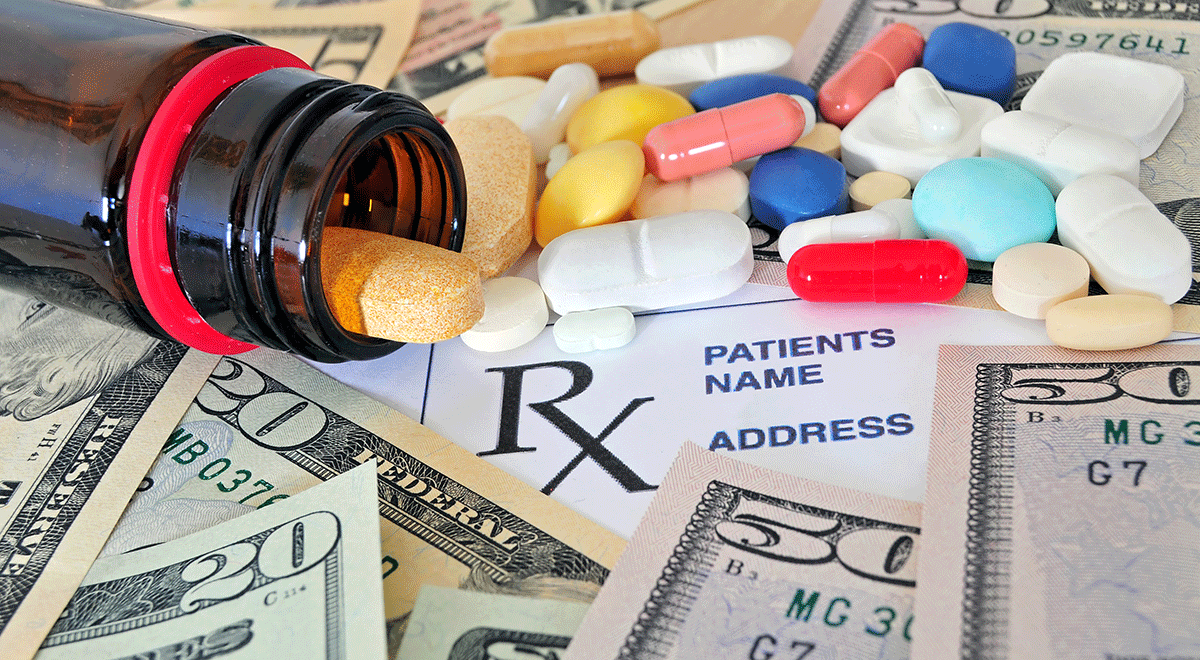Why is it that Americans must pay the highest prices in the world for prescription drugs? We all know the reason: lawmakers are in the back pocket of Big Pharma. At behest of the industry, Congress passed two pieces of legislation over the years to insure that Big Pharma can continue to screw us: the Prescription Drug Marketing Act of 1987 and the Ryan Haight Pharmacy Consumer Protection Act.
These gifts to the pharmaceutical industry have made it illegal for Americans to import lower-priced prescriptions from foreign suppliers (ostensibly in the name of “protecting” U.S. consumers), and gives U.S. Customs agents the power to seize any prescriptions at the borders.
There is a loophole, however: FDA regulations allow U.S. consumers to import up to a three-month supply of certain medications for their own personal use, either by bringing them into the country in their own luggage or having them shipped from abroad. Because of this loophole, there are legitimately registered pharmacies in several countries that accept orders from U.S. residents over the World Wide Web.
Naturally, this doesn’t sit well with U.S. drug companies. In 2003, the National Association of Boards of Pharmacy (NABP) published a paper, calling the importation of prescription drugs a “crisis,” citing the “dangers” of “bioterrorism” and the “dangers” of purchasing from “unregulated” sources that may substitute expired, contaminated or counterfeit drugs – even when these are the very same medications sold in the U.S.
Nonetheless, since there are already laws in place prohibiting importation of prescriptions, Big Pharma doesn’t have a lot of power over the situation. Their only option is to get their handmaidens in Congress to regulate the Internet in ways that would make such importation difficult or impossible.
While the fight for Net Neutrality is an ongoing one for the time being, the Federal government has chosen not to censor the World Wide Web. So, Big Pharma is turning to its corporate partners, making deals with a host of intermediaries – including payment sites such as PayPal, search engines like Google and Yahoo – and not the least, Internet registries of pharmacy websites. These registries police pharmacy websites, insuring their legitimacy, weeding out those sites selling counterfeit medications. However, they also have to power to make certain that American Internet users cannot even locate legitimate overseas pharmacies online.
The recent release of the top level domain “.pharmacy” has made this kind of corporate censorship much easier. Since many legitimate pharmacies still use the old “.com” and “.net” TLDs as well as those specific to different countries (such as “.ca” and “.fr”), it hasn’t posed that much of a problem for U.S. consumers – yet. However, at the behest of the pharmaceutical industry, private organizations such as the NABP are applying pressure to ICANN, the Internet registry, to require all pharmacies advertising online to prove they are licensed in the U.S. before being allowed to send prescriptions into the country. This could cause them to disappear from the Web altogether, at least in the U.S.
And since ICANN and the NABP are not accountable to We, The People, the rest of us wouldn’t have a lot of say in the matter. Now, most of us would agree that sales of counterfeit and substandard prescriptions is a genuine danger that should be dealt with. However, such actions should be undertaken by government regulators and law enforcement agencies – not private corporate entities beholden to the interests of Big Pharma.

